
Pickles frowns on eating chicken, in any form, as part of your holiday celebration. But she did want me to share three important things with you heading into the long weekend. You never know when the opportunity for civil discourse will present itself—even at the family cookout.
Cameras in the Courts
In the Trump prosecution in Georgia, Fulton County Judge Scott McAfee has announced that all proceedings, including the trial, will be livestreamed. It was just that easy. You can watch the case proceed on YouTube.
And just like that, America will have access to true facts. People may disagree about whether a witness was credible, but there will be no dispute about whats they said. Americans will be able to observe demeanor, body language, and facial expressions, and judge for themselves. And most of the witnesses against Trump are Republicans, including high ranking officials like Georgia Governor Brian Kemp and Secretary of State Brad Raffensperger.
Ahead of the trial of the police officers who murdered George Floyd, there was a lot of bad, biased information in circulation. People who claimed Floyd had overdosed or had done something that merited being held in a chokehold for nine minutes and 29 seconds. But the trial was held on television. Many people watched large blocks of testimony and saw the video. When the jury rendered its guilty verdict, people understood why. That’s one of the virtues of cameras in the courts. Even those who couldn’t spare time to watch the trial saw excerpts in the news and were able to gain accurate information about key parts of the trial.
Unlike the two federal cases against Trump and the New York prosecution, in Georgia, people who are interested will be able to watch the proceedings from start to finish. They will be able to judge the lawyers’ arguments for themselves, and determine whether the judge conducts proceedings fairly. For people who believe in transparency and fairness, this is a good thing. State courts do this all the time, and there’s no reason to believe it will be any less effective here that it was in the case of former police officer Chauvin, who was convicted of killing George Floyd, or of the three men responsible for the murder of Ahmaud Arbery, a Georgia man who was killed because he was Black. Those high profile cases where emotions ran high were conducted fairly. Trump’s can be too. That is, unless, a federal judge moves the cases from state to federal court. Read on.
Removal
Earlier this week, Federal Judge Steve Jones in Atlanta held a hearing to consider Mark Meadows’ motion to remove his prosecution from state court to federal court. Other defendants who’ve filed similar motions are set for hearings later this month. Trump has still not filed a motion to remove his case, although he has plenty of time to do that. Several reporters have suggested he will.
Here’s the most interesting part: after the hearing, Judge Jones asked the parties to file a supplemental brief on Thursday, which they did, to address a question. He asked whether a finding on his part that at least one (but not all) of the overt acts prosecutors alleged in the indictment occurred under the color of Meadows’ office—i.e., as part of his official duties—would be sufficient to justify removing the case to federal court. Some folks read the request as suggesting the Judge was inclined to make that finding and thought that some of Meadows’ conduct occurred in his role as chief of staff.
That’s not my interpretation. Judge Jones has a reputation for doing his homework and being thorough. A question like this suggests he thought the parties hadn’t addressed that question, and he thought there was something interesting there. Sure enough, there was. Meadows’ predictable response was that if even one of the many overt acts involved his official duties, the entire case should be removed to federal court.
That’s not how Fulton County District Attorney Fani Willis saw it. Her position rests on the distinction between crimes that are charged, like the RICO conspiracy, and overt acts, which are steps that defendants take, not necessarily crimes in and of themselves, to further a criminal conspiracy. Willis corrected Meadows’ focus on individual overt acts, pointing out that for removal to federal court to be warranted, he must show that the RICO conspiracy crime, as a whole, fell within his official duties. It is, perhaps, a subtle legal distinction, but she gutted him with it. Because trying to interfere with the vote count in one of the sovereign states simply doesn’t fall within a president’s officials duties, nor within his chief of staff’s. Judge Jones has every reason to send the case back to state court.
There are three prongs to the test for when a criminal prosecution can be removed to federal court from the state court where it was indicted. A defendant has to show:
1. That he is a public official. Not contested here.
2. That the conduct he's accused of committing was done as part of his official duties.
3. That he has a “colorable,” i.e, potentially legitimate if the facts are as he says they are, federal defense.
Most often, removal cases involve federal law enforcement agents, and they are accused of conduct that was clearly part of their official duties, for instance a shooting while executing a search warrant or an arrest warrant. In fact, in the past few years, the Fulton County district attorney’s office had a case just like that, that was removed to federal court. In other words, Willis knows the score here. In the federal agent cases, the second prong doesn’t get much attention because the answer is obvious. So, it gets glossed over.
But here, that issue of whether the conduct was part of the official job is critical. That makes this case very different, because there are solid reasons to question whether Meadows was doing the work of the presidency at all in Georgia. It seems far more likely that he was doing the work of the campaign. The hearing transcript substantiates that even Meadows conceded he was doing the work of the campaign at various points, contributing to key aspects of the RICO conspiracy. Andrew Weissman pointed out that Meadows, while being questioned by his own attorney, acknowledged that “he participated in the elector scheme for CAMPAIGN purposes - i.e., so Trump would win reelection.”
That should be ballgame. Forget about individual overt acts. For removal purposes, the question is whether the conspiracy fell within Meadows’ official duties, and the answer is no. Meadows’ participation in Trump’s scheme to "find 11,780 votes" is not an official act. States are responsible for their own elections and their own vote counts. Meadows was engaged in the work of the campaign, not the work of the presidency.
Willis’ argument is compelling. This excerpt from her brief outlines the connection between the second and third prongs of the test for removal. She explains that if even some of the overt acts were not part of Meadows’ official duties, then he doesn’t have even a colorable defense to the RICO conspiracy charge because his Supremacy Clause and federal immunity defenses only work if every single thing he did was part of his job. The theory behind that defense is that the Supremacy Clause of the Constitution prohibits states from prosecuting federal officials to avoid situations where a state could shut down the federal government. By conceding some of the work he was doing was in the service of the campaign, not the people, Meadows seems to have vanquished his own case.
You can read all of the district attorney’s supplement brief here. Meadows’ brief can be found here. With these submissions filed, the issue of removal is ripe for a decision by Judge Jones at any time.
Losing his removal motion may not be the worst of it for Meadows. As NYU Law Professor Ryan Goodman points out, his inconsistent testimony certainly won’t help his credibility with the Judge, and could even rise to the level of perjury.
SCOTUS
Finally, there’s this.
Justice Clarence Thomas filed his 2022 financial disclosure forms (with a 90-day extension) this past Thursday. In a sense, it’s proof that civil discourse works. ProPublica’s investigative journalism earlier this year launched a barrage of public criticism of the Justices. Despite the Nine’s usual imperviousness to any public criticism, that spotlight resulted in a filing where, for the first time, Thomas reports more fulsome information about gifted travel from his wealthy buddy. He provided information about three trips he took last year on a private jet owned by GOP mega-donor and billionaire Harlan Crow, who befriended Thomas after he became a Justice.
Thomas didn’t submit updated information for prior years, but there’s an apparent attempt to justify prior omissions via explanations on the 2022 form. Thomas offered some weak sauce—what he characterized as an “inadvertent” failure to report that Crow purchase the house Thomas’s mother lives in. That happened in 2014. Thomas claimed he didn't know he was required to disclose that sale because of improvements made to the home over the years and that the transaction was a "capital loss,” so he was excused from reporting it. Hard to figure how upkeep and maintenance he paid for on the home his Mom lived in meant he didn’t have to disclose its purchase by his billionaire friend.
Thomas’s 2022 filing may be a start, but it can’t be the end of the conversation here. Neither Thomas, nor Justice Sam Alito, who received a similar extension to permit him to file his forms late, provided much information about benefits received in previous years. The real question is whether someone will do something about this disgraceful situation, or whether after all of ProPublica’s reporting, the Justices will be permitted to sweep it back under the rug with few consequences and no fix for the future of the Court. That should be unthinkable.
The fact that Justice Thomas reported the information about his trips courtesy of Crow this past year is an acknowledgment that he should have been doing it all along.
The reports by ProPublica and other journalists revealed the influence of powerful billionaires over some members of the Court. Americans are widely familiar with it. In a July poll, 62% of Americans believed the Court had a legitimacy crisis and the Court’s popularity with the public is the lowest it’s been in nearly two decades. While deserved, at least in part, it’s a terrible thing for an institution whose credibility is essential to the ability of the courts to resolve the difficult issues they must for our country to function.
It doesn’t have to be that way. The Court could have taken direct steps to address its problems. But the Chief Justice, who has the bully pulpit to do so, has done little to strengthen the ethics requirements the Justices impose on themselves, and nothing to put them on par with requirements for the rest of the federal judiciary or other political appointees in government.
Unless and until the Court addresses the matter satisfactorily, we should all keep it front and center and share information about the situation with friends and family. Justices, like judges, are appointed by presidents from both political parties. Ethics on the Supreme Court is a bipartisan issue. The nine people in black robes who determine what rules the rest of us must follow should impose some on themselves. Or at least they should if they appreciate how important it is whether or not Americans are going to begin to trust them again. Here’s the link to the original ProPublica story, if you’d like to reread it or share it.
Thanks for subscribing to Civil Discourse. I’m glad you’re here! If you aren’t already, I hope you’ll consider becoming a paid subscriber, which really helps to support this work, but regardless, thank you for taking the time to be here, to read, and to care about our future. Happy Labor Day Weekend.
We’re in this together,
Joyce




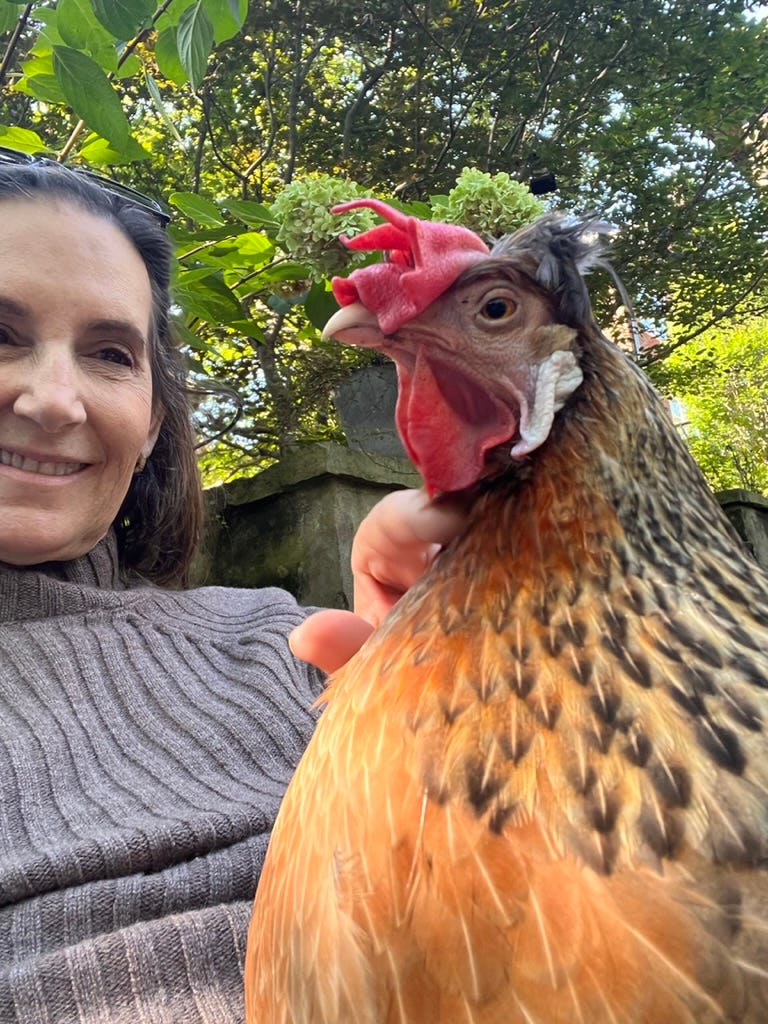
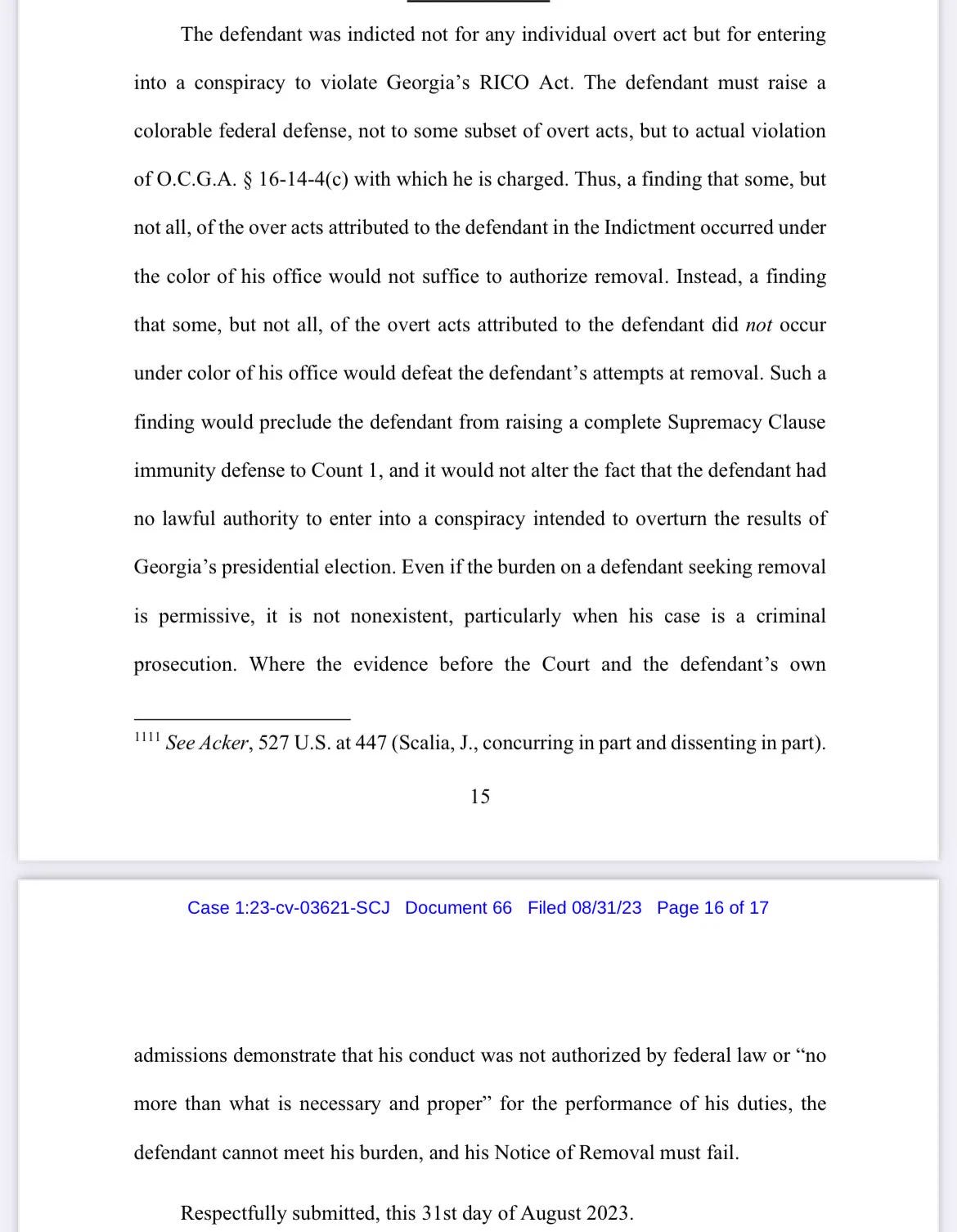
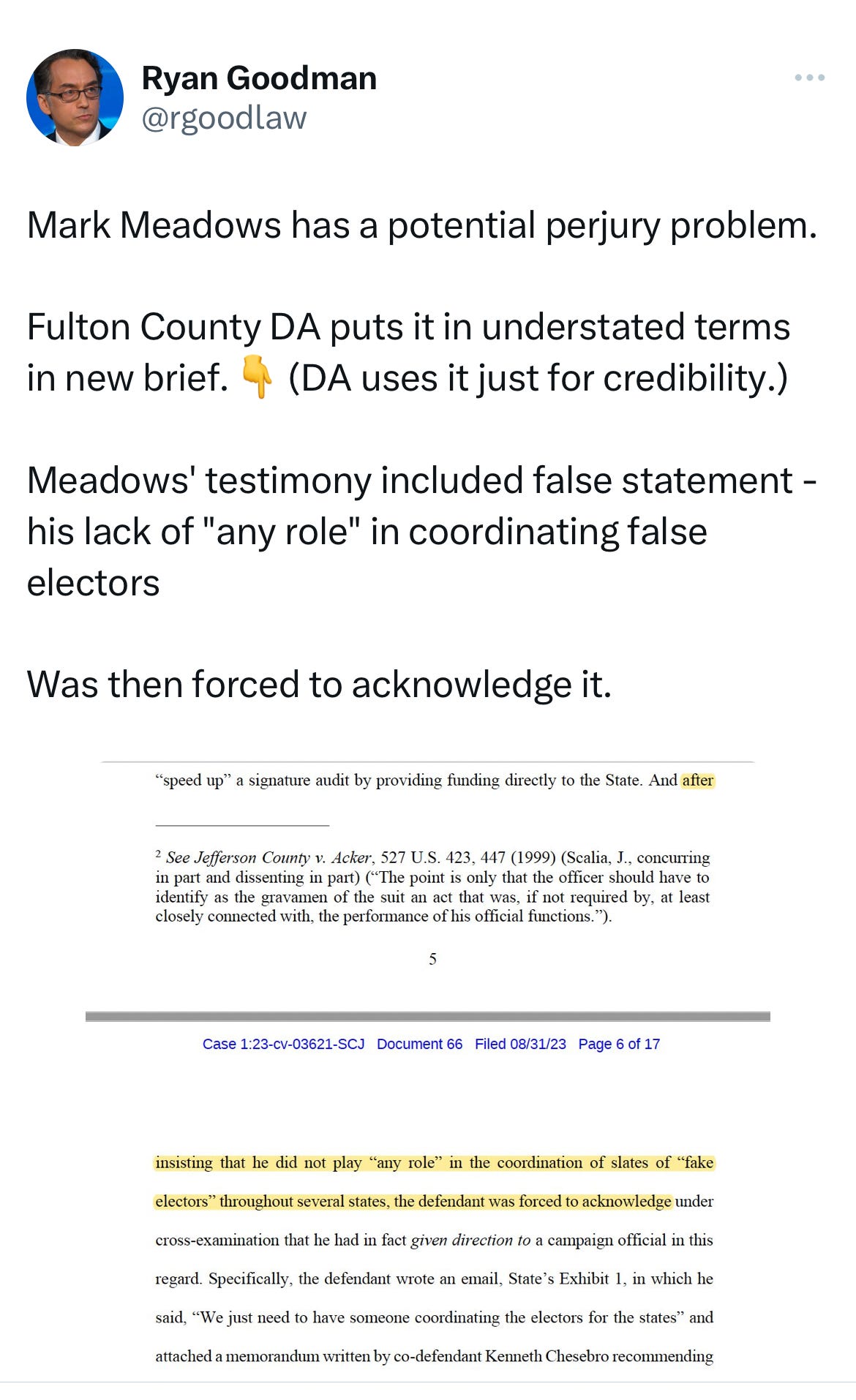
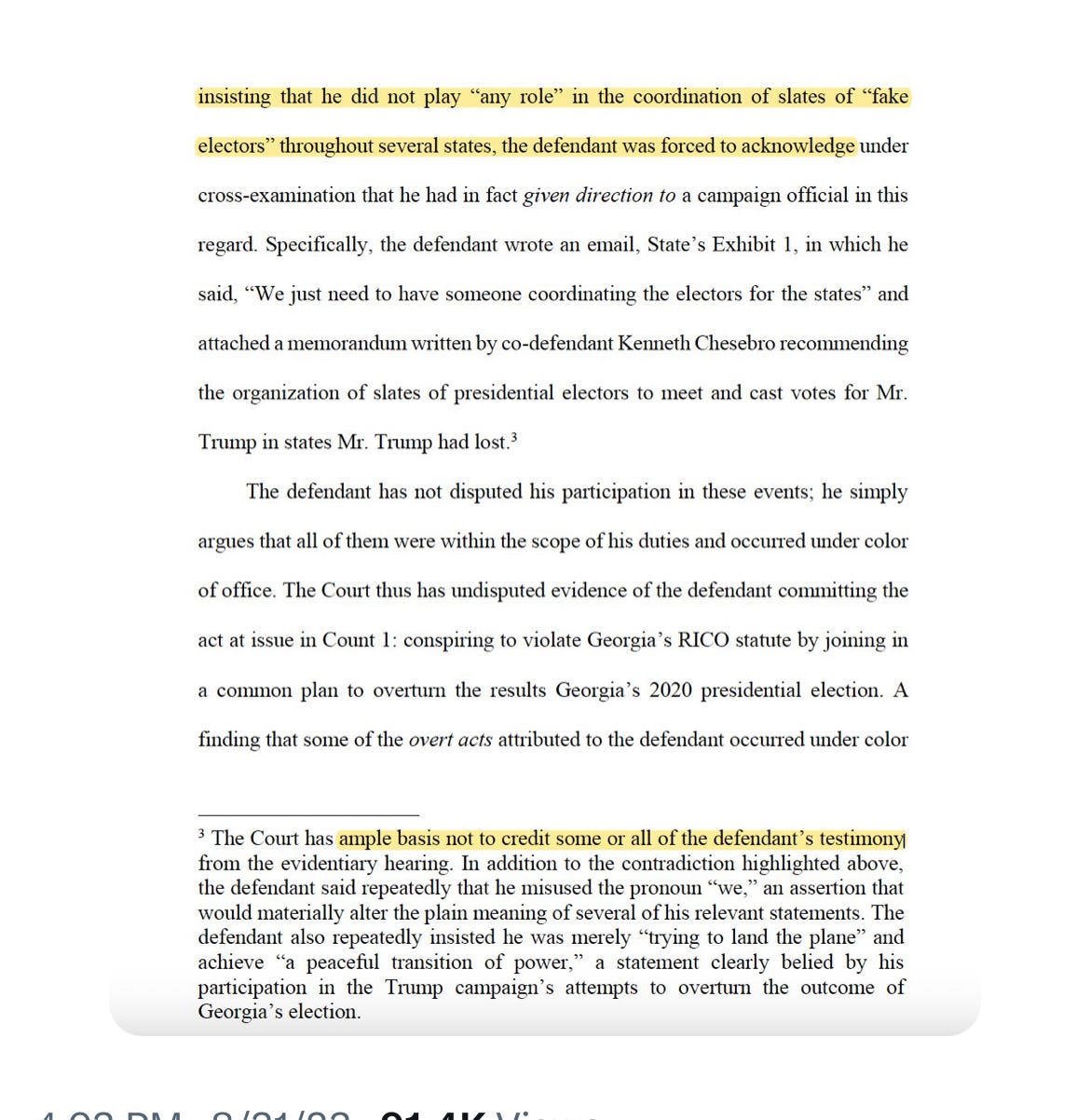
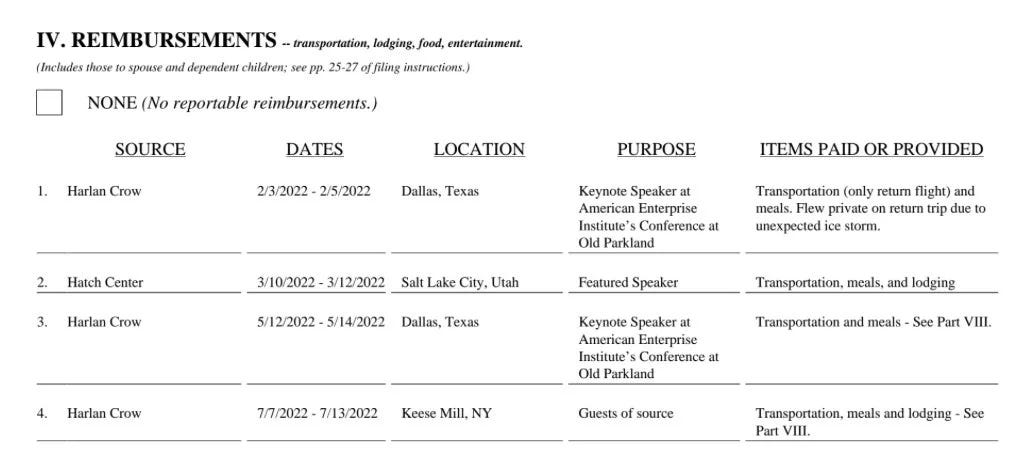





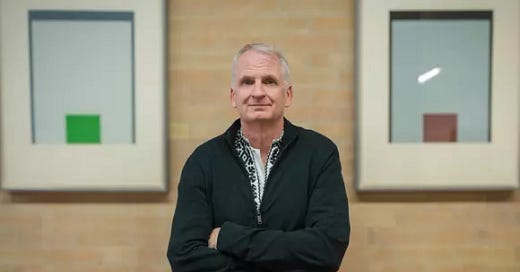

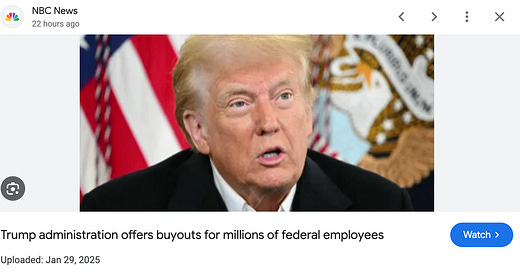

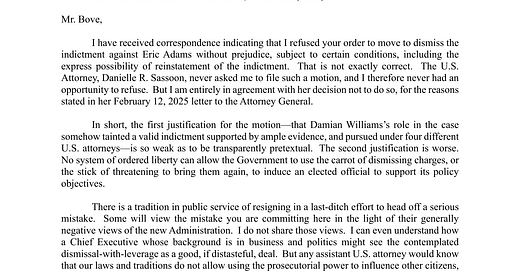

Thanks, Joyce. Nice wrap-up. Chief Justice Roberts probably dares not to jump on any other Justices about their indiscretions when his wife has had some questionable income, upwards of $10 million for matching lawyers to elite law firms over a 7 year period. Nice moola, if you can get it, eh? I think Meadows is out of luck & I hope he is spanked in State Court. As for trump having not declared for his case to be switched to Federal Court, he is probably using as much time to delay that option as possible. America is due for some relief from all of these trump & his allies shenanigans. Let it start sooner rather than later. I'd like to give Governor Kemp kudos for standing up for Fani Willis and the Constitution. Wish that would cause other Republicans to gird up their loins & defend America from trump. Carry on.
1. While it may seem that Meadows was doing the work of the campaign in attempting to get Georgia to change its votes, the campaign was over. The votes had been counted. The work Meadow was doing was to conspire to overturn an election; the work was the criminal conspiracy.
2. Clarence Thomas claims that he needed to travel by private jet out of fear after the leak of the draft opinion overturning Roe. OK. And the other paid for travel during the year? And the paid for travel in previous years? He could not get away with an excuse like that made to a competent third grade teacher.